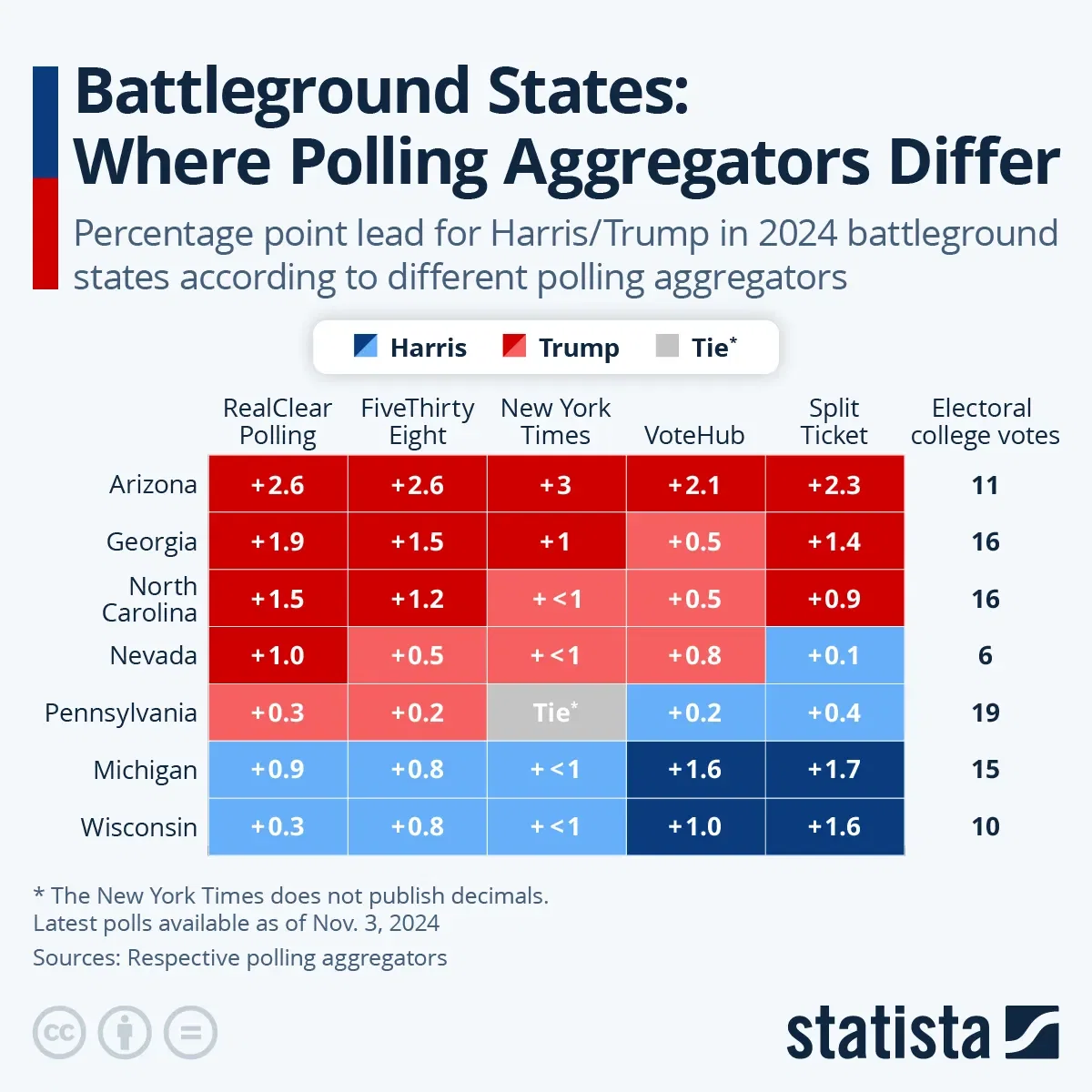Where Data Tells the Story
© Voronoi 2026. All rights reserved.

It is well known that certain polls on the U.S. election differ significantly depending on who publishes them and what methodology they use. Polling aggregators want to eliminate some of this uncertainty by calculating averages of different recent polls. But in an election that is as close as the 2024 U.S. presidential race, even aggregators are now receiving scrutiny concerning their methods and potential political leanings.
A look at current polling aggregator averages does reveal that their results differ some. However, many of the disparities are within the margin of error of around 3 to 5 percent (in either direction) that applies to most polls of this type.
RealClear Polling, identified as the most right-leaning aggregator, sees Donald Trump leading in four out of seven battleground states with more than 1 percentage point. FiveThirtyEight by ABC News only has the Republican candidate this far ahead in three out of the seven states that will likely decide the upcoming election on Tuesday. While RealClear Polling showed an improved outlook for Trump earlier on, FiveThirtyEight's polling average has more recently veered to show a stronger outlook for him. The New York Times sees a slimmer Trump lead in many of the same states, with only Arizona and Georgia at a 1 percentage point lead or above. Independent operations VoteHub and Split Ticket see Democrat Kamala Harris' outlook more positively, if still well within the margin of error.
Generally, the states that Trump leads across the board, however narrowly, tend to hold more electoral college votes, like Arizona (11), Georgia (16) and North Carolina (16). This is opposed to the states where Harris is consistently showing a small lead: Wisconsin (10) and Michigan (15). Out of the states in question, Pennsylvania has the most electoral college votes at 19 as well as the smallest margins observed by the pollsters, making it potentially the most pivotal battleground come Tuesday. Among non-battleground states, it is Harris who has a small lead, so that winning Wisconsin, Michigan and Pennsylvania would be sufficient to reach a majority of 270 electoral college vote (when also winning Nebraska's second district and not losing any non-battleground states now attributed to her).